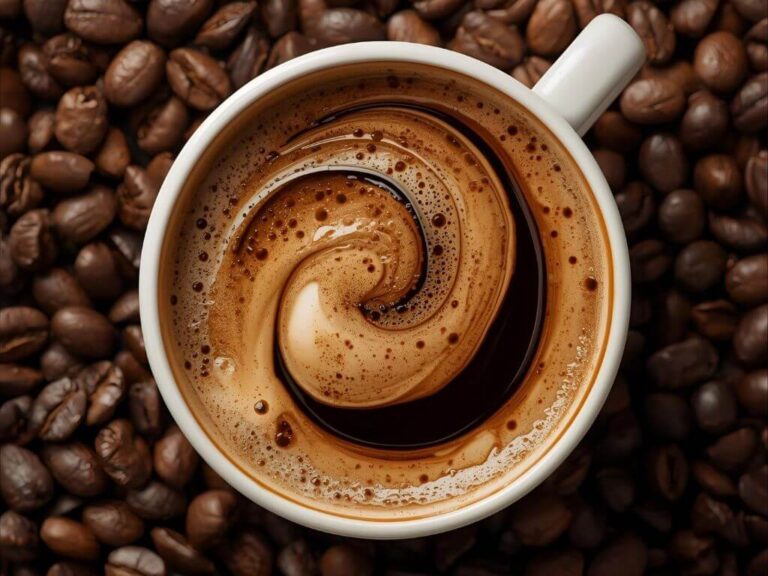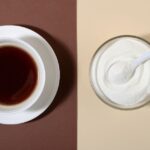How Much Caffeine Is in Coffee Ice Cream? Compare Popular Brands
Love coffee ice cream but worry about caffeine keeping you up at night? You’re not alone! Whether you’re sensitive to caffeine, serving it to kids, or just curious, knowing how much caffeine is in your favorite frozen treat is key.
Here’s the deal: Coffee ice cream does contain caffeine, but not as much as you might think. A single scoop may have anywhere from 20mg to 50mg—way less than a cup of coffee. But brands vary, and some even use caffeine-free flavoring!
In this guide, we’ll break down:
✅ How much caffeine is in popular brands (Häagen-Dazs, Ben & Jerry’s, Starbucks, and more).
✅ How it compares to coffee, decaf, and chocolate ice cream.
✅ Whether it can actually give you a caffeine buzz.
✅ Caffeine-free alternatives so everyone can enjoy it.
Ready to dig in? Let’s go!
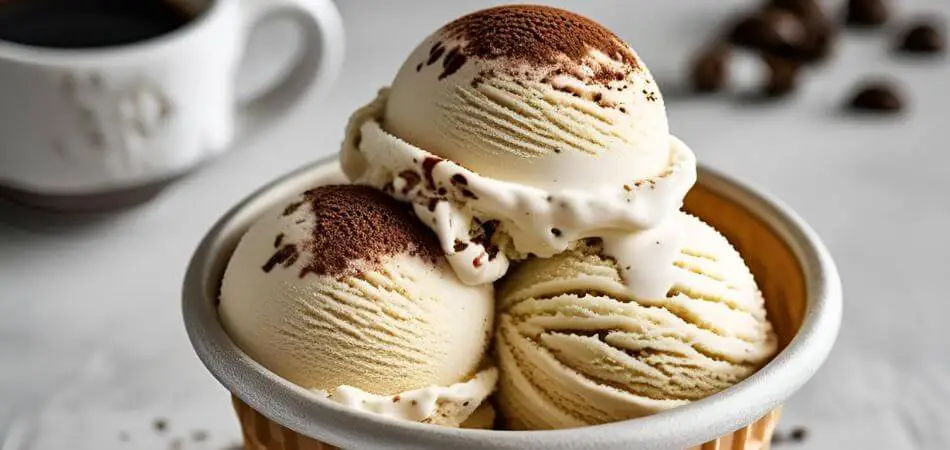
Does Coffee Ice Cream Actually Contain Caffeine?
Short answer: Yes, but not always!
Coffee ice cream gets its flavor from—you guessed it—coffee. But the caffeine content depends on how it’s made:
Factors That Affect Caffeine Levels:
🔹 Type of Coffee Used
- Espresso: Stronger, more caffeine.
- Brewed Coffee: Milder, less concentrated.
- Artificial Flavoring: Some brands use synthetic coffee flavor with zero caffeine.
🔹 Brand & Recipe Differences
- Premium brands (like Häagen-Dazs) often use real coffee.
- Store brands might use coffee extracts with varying caffeine levels.
🔹 Homemade vs. Store-Bought
- If you make it at home, you control the caffeine! (More on this later.)
Fun Fact: Some “coffee-flavored” ice creams (especially cheaper ones) contain no real coffee—just flavoring! Always check the label if you’re avoiding caffeine.
How Much Caffeine Is in a Serving? (Brand Breakdown)
Not all coffee ice creams are created equal. Here’s how much caffeine you’ll find in popular brands:
Caffeine in Popular Coffee Ice Creams (Per ½ Cup Serving)
| Brand | Caffeine (mg) | Equivalent to… |
|---|---|---|
| Häagen-Dazs | ~30 mg | ¼ cup of coffee |
| Ben & Jerry’s | ~25 mg | Less than a tea |
| Starbucks | ~40 mg | ½ espresso shot |
| Store Brand (Generic) | ~15-20 mg | A few sips of soda |
Key Takeaways:
- Most servings have 20-50mg—much less than coffee (95mg per cup).
- Starbucks packs the most (thanks to their strong coffee base).
- Kids & sensitive folks? A small scoop (like ¼ cup) is usually fine.
What About Homemade Coffee Ice Cream?
If you make it yourself, caffeine depends on:
✔ Coffee strength (espresso vs. light brew).
✔ How much coffee you mix in.
✔ Using decaf? Almost no caffeine!
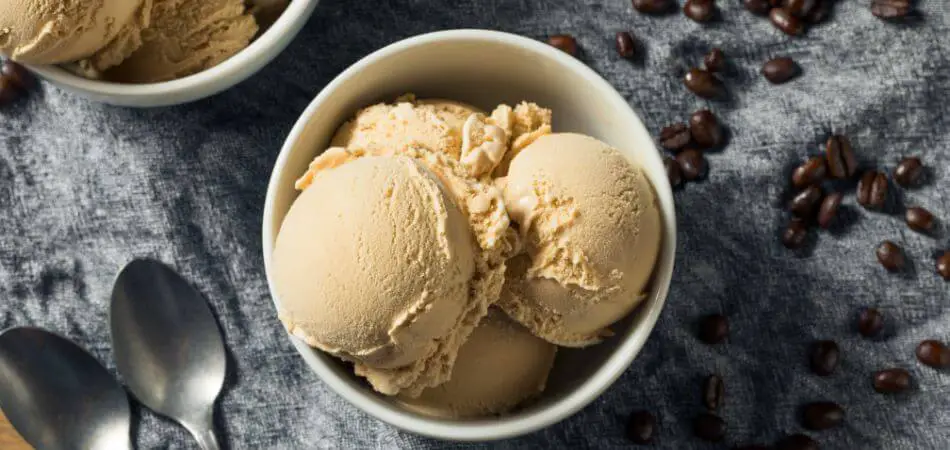
Coffee Ice Cream vs. Regular Coffee: How Do They Compare?
You might be wondering – if coffee ice cream has caffeine, does it give the same energy boost as your morning cup? Let’s break it down:
Caffeine Showdown: Ice Cream vs. Coffee
| Beverage/Dessert | Typical Serving Size | Average Caffeine Content |
|---|---|---|
| Brewed Coffee | 8oz (1 cup) | 95mg |
| Espresso | 1 shot (1oz) | 63mg |
| Coffee Ice Cream | ½ cup (1 scoop) | 25-40mg |
| Decaf Coffee | 8oz (1 cup) | 2-5mg |
Key Takeaways:
- A full cup of coffee has 2-4 times more caffeine than a scoop of coffee ice cream
- You’d need to eat 3-4 scoops to equal one cup of coffee
- The milk/fat in ice cream may slow caffeine absorption slightly
What About vs. Other Caffeinated Treats?
- Chocolate ice cream: Only 5-10mg per serving (from cocoa)
- Matcha ice cream: 30-50mg per serving
- Cola float: 30-40mg (from the soda)
Pro Tip: If you’re sensitive to caffeine but love the flavor, try pairing a small scoop with decaf coffee for the ultimate coffee experience without the jitters!
Can Coffee Ice Cream Actually Keep You Awake?
Here’s what you really want to know – will that bedtime bowl of coffee ice cream leave you staring at the ceiling?
The Truth About Caffeine and Sleep
- For most people: One scoop (25-40mg) won’t disrupt sleep
- For caffeine-sensitive folks: Even this amount might cause issues
- Timing matters: Caffeine’s half-life is 5 hours – so afternoon treats are safer than evening ones
Fun Experiment: Try having your ice cream at different times of day and track how it affects your sleep. You might be surprised!
When Coffee Ice Cream CAN Give You a Buzz
You might feel effects if:
- You eat multiple servings (2+ scoops)
- You’re very caffeine-sensitive
- You combine it with other caffeine sources (like chocolate sauce)
My Personal Rule: I stick to one scoop before 4pm if I’m worried about sleep!
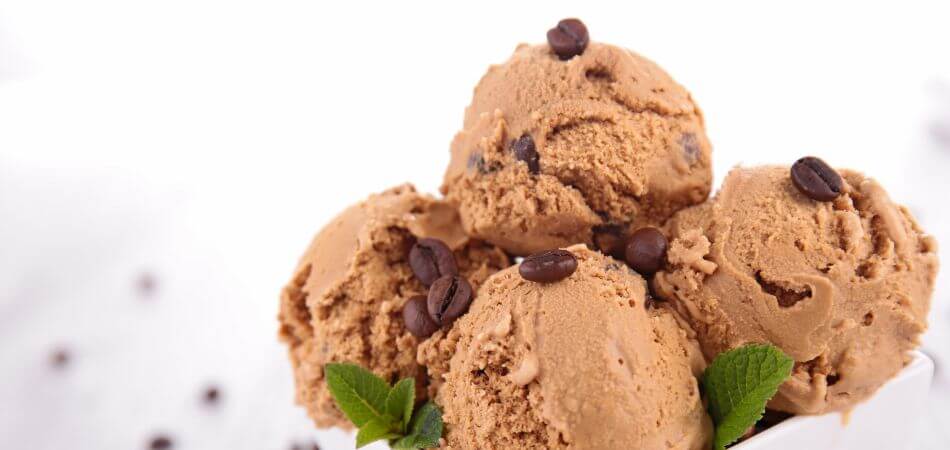
Caffeine-Free Alternatives for Nighttime Cravings
Good news! You can enjoy coffee flavor without the caffeine. Here’s how:
Store-Bought Options
- Look for “coffee-flavored” instead of “coffee” – these often use artificial flavoring
- Try these popular low/no-caffeine brands:
- Turkey Hill Coffee Chocolate Chip (5mg per serving)
- Edy’s/Dreyer’s Slow Churned Coffee (15mg)
- Breyers Coffee (10mg)
DIY Caffeine-Free Coffee Ice Cream
Ingredients:
- 2 cups heavy cream
- 1 cup whole milk
- ¾ cup sugar
- 1 tbsp vanilla extract
- 2 tbsp decaf coffee granules (or ¼ cup cold brew decaf)
Instructions:
- Dissolve coffee in 1 tbsp hot water
- Mix all ingredients and churn in ice cream maker
- Freeze for 4+ hours
- Enjoy worry-free any time of day!
Pro Tip: Add mix-ins like crushed cookies or chocolate chips to enhance the flavor without adding caffeine.
Conclusion: Enjoy Your Scoop Without the Worry!
After digging into the details, here’s the sweet truth about caffeine in coffee ice cream:
The Bottom Line:
✔ Most servings have less than ¼ the caffeine of a cup of coffee
✔ You’d need to eat multiple scoops to get a real energy boost
✔ Plenty of low-caffeine and caffeine-free options exist
Final Tip: If you’re unsure about a brand, check the label or contact the manufacturer – many list caffeine content online!
Now I’m curious – did any of these caffeine amounts surprise you? Have you ever felt buzzed from coffee ice cream? Share your experiences in the comments! And if you found this helpful, why not share it with fellow coffee-and-ice-cream lovers?
FAQ’s
Is there caffeine in coffee ice cream?
Yes, coffee ice cream typically contains caffeine since it’s made with real coffee or espresso. The caffeine content varies by brand but is usually lower than a cup of coffee.
Is there enough caffeine in coffee ice cream to keep you awake?
Coffee ice cream contains some caffeine, but the amount is much lower than a cup of coffee, so it’s unlikely to keep you awake. However, if you’re sensitive to caffeine, it might still have a mild stimulating effect.
Is there caffeine in tillamook coffee ice cream?
Yes, Tillamook Coffee Ice Cream contains caffeine since it is made with real coffee. However, the caffeine content is lower than a regular cup of coffee, making it a mild treat.
Does coffee ice cream affect sleep?
Yes, coffee ice cream can affect sleep because it contains caffeine, which can stimulate the nervous system and make it harder to fall asleep. However, the impact depends on the caffeine content and individual sensitivity.

